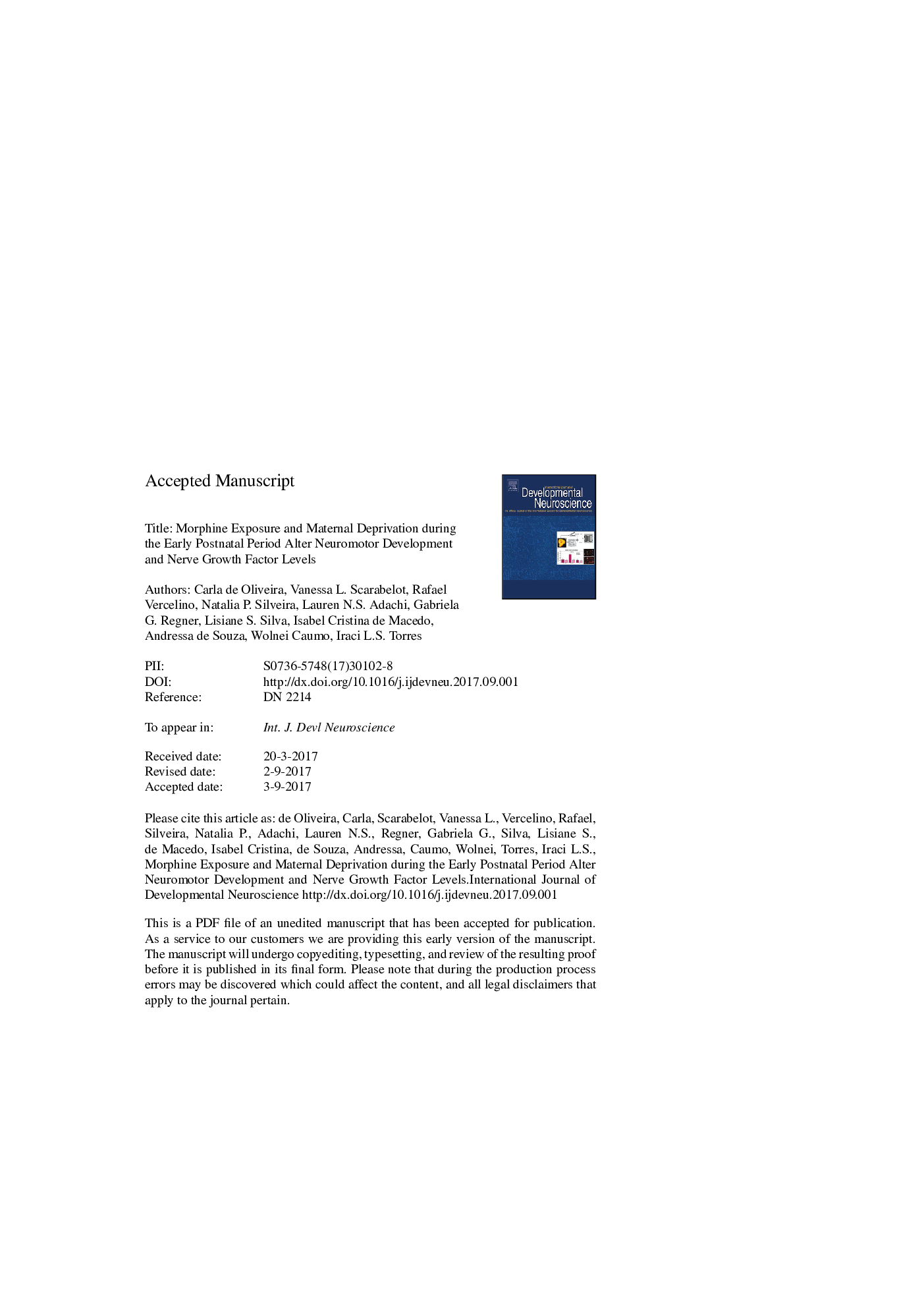| Article ID | Journal | Published Year | Pages | File Type |
|---|---|---|---|---|
| 5585729 | International Journal of Developmental Neuroscience | 2017 | 35 Pages |
Abstract
The objective of this study was to verify whether repeated morphine administration and maternal deprivation in early life alter neurobehavioral development and central nerve growth factor (NGF) levels. A total of 58 male Wistar rat pups were used in our study. From postnatal day 1 (P1), litters were daily deprived of their mother for 3 h; this was continued for the first 10 days of life. Animals were divided into 5 groups: total control (C), did not receive any intervention; saline (S), received saline solution; morphine (M), received morphine; deprived-saline group (DS), were subjected to maternal deprivation and received saline solution; and deprived-morphine (DM), were subjected to maternal deprivation and received morphine. From P8, newborns received subcutaneous (s.c.) injections of morphine or saline (5 μg) once daily for 7 days. Righting reflex, negative geotaxis and gait were chosen as postural parameters to evaluate neuromotor reflexes. In the righting reflex test, a delay in the development of animals was evidenced in the M group. Performance of negative geotaxis was slower in the M and DM groups. In the gait test, all groups showed a daily improvement in performance in terms of locomotion frequency. An increased frequency of rearing was observed in the M, DS, and DM groups from P16 to P20. The DM group presented an increase in NGF levels in the brainstem. An increase in cerebral cortex NGF levels in the M, DS, and DM groups was observed as well. Our results suggest that changes in environmental conditions and the disruption of mother-infant interactions during the neonatal period can produce changes in the neurobiology, physiology, and emotional behavior of rats. This finding has important implications for the maternal-neonate interaction needed for normal brain development in newborns.
Related Topics
Life Sciences
Biochemistry, Genetics and Molecular Biology
Developmental Biology
Authors
Carla de Oliveira, Vanessa L. Scarabelot, Rafael Vercelino, Natalia P. Silveira, Lauren N.S. Adachi, Gabriela G. Regner, Lisiane S. Silva, Isabel Cristina de Macedo, Andressa de Souza, Wolnei Caumo, Iraci L.S. Torres,
